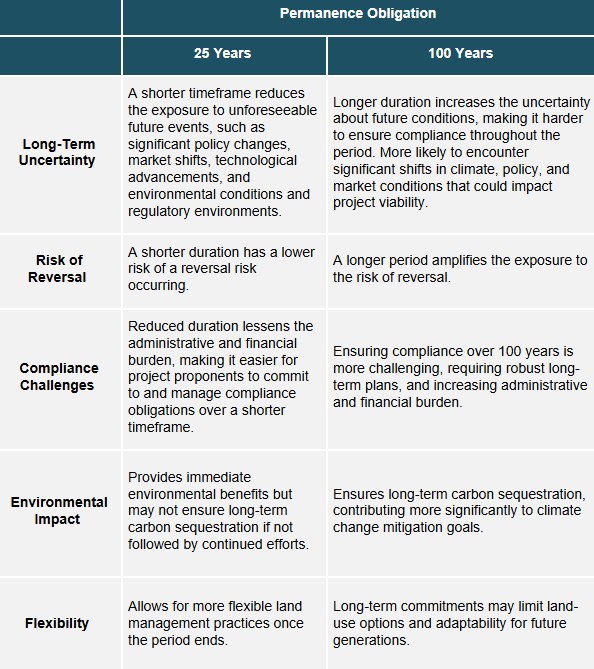What is the permanence obligation?
A permanence obligation is a condition placed on a ACCU Scheme project proponent, whereby they must maintain the carbon stocks in their project for the duration of their permanence period. Each project must commit to a permanence period at registration of the project. Permanence periods can be either 25 or 100 years, with the timeframe beginning at the first offset report (between years 0 and 5).
What is a permanence plan?
During project registration, you are required to develop a permanence plan outlining all risks and mitigation actions you will undertake to minimise the chance of avoidable reversal events. If the stored carbon is lost (e.g., due to fire, drought, or land-use change), the project owner must take actions to rectify the loss, such as replanting trees or purchasing and retiring carbon credits equivalent to the amount lost.
Deductions
For any ACCU scheme project, the Regulator subtracts 5% of credits from each issuance as anon-refundable security buffer. This is a safeguarding measure that insures the ACCU Scheme as whole against loss of carbon. For a 25-year permanence obligation, you will have an additional percentage of your carbon credits deducted as the carbon storage is considered less permanent (because you aren’t required to keep the carbon stored beyond 25 years). Remember – whilst your crediting period is
25 years, your permanence obligations will continue to apply until the end of your permanence period. This deduction varies between project methods. Reach out to the CFF to understand the difference in deductions depending on the circumstances of your project.
Risks vs rewards
Permanence obligations represent a long-term commitment. When nominating a permanence period, you should consider whether it aligns with both your long-term commercial and on-farm objectives. The table below outlines some of the items you should take into consideration before proceeding:

Want more information? Head to the CER website for more information on permanence obligations, or book in a chat with the CFF team.



![AFN – Cert Accredited Expert [RGB] AFN - Cert Accredited Expert [RGB]](https://carbonfarming.org.au/wp-content/uploads/elementor/thumbs/AFN-Cert-Accredited-Expert-RGB-e1725255016744-qti2uogw4b9a3s6au2d1bbf4utb8ggjuwvkj4qpce8.png)